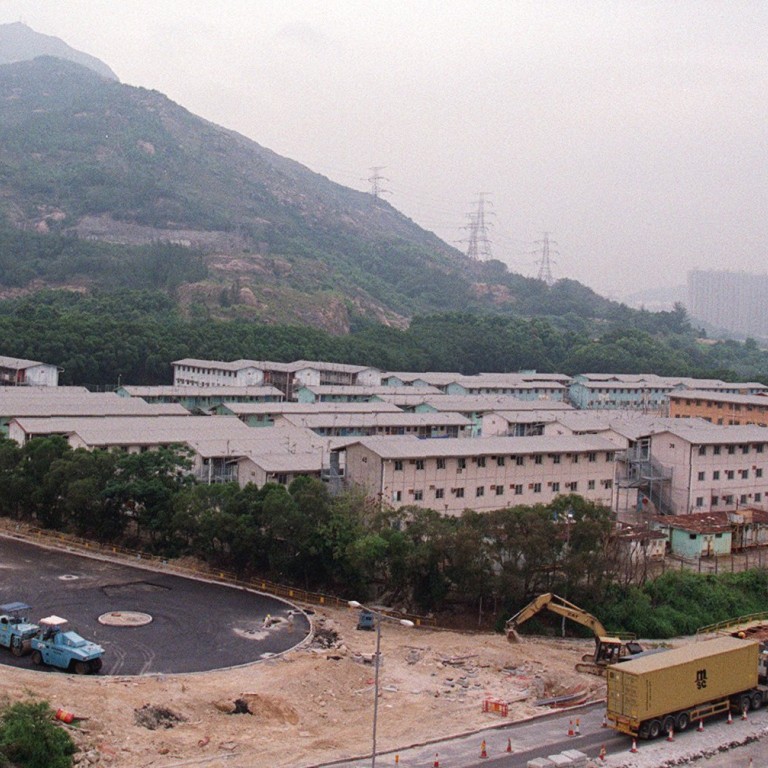
Controversy over Hong Kong's asylum seekers harks back to Vietnam
Massive influx of boat people in the 1970s and '80s still influences government stance
For over a decade, local NGOs and lawyers aiding the city's refugee community have been calling for a revamp of the system that decides whether refugees stay or go.

Yet almost three months on, amid controversy over the rollout of the system, advocates of long-term asylum seekers are accusing the government of deliberately making the process difficult.
The accusations come as a report by Justice Centre Hong Kong, formerly known as the Hong Kong Refugee Advice Centre, found more than half of 250 asylum seekers urgently needed guidance on how to file a claim.
The government's stance may stem from its experience in dealing with the influx of hundreds of thousands of refugees from Vietnam to Hong Kong in the 1970s and '80s.
That influx took 25 years and cost more than HK$1.6 billion to process. It also prompted concerns over riots in the 1990s as refugee camps became overcrowded and the inmates frustrated.
Between 1975 and 1999, 143,700 Vietnamese refugees were resettled in other countries and more than 67,000 Vietnamese migrants were sent back to Vietnam. A little more than 1,000 were allowed to remain in Hong Kong and assimilate.
Now there are only an estimated 6,000 refugees in the city, most from Africa and South Asia.
While some of these have fled dictators and brutal regimes, others may be motivated only by economic concerns.
But the methods of sorting the real claimants from the false have been opaque, costly and inefficient, say NGOs and lawyers.
The Hong Kong government has overseen torture claims since 2004, while other claims were taken on by the UNHCR.
Some asylum seekers filed claims with both bodies, hoping to see quicker results, but many were left in limbo for years.
About HK$450 million is expected to be spent in 2013-14 to help torture claimants and asylum seekers. The costs include welfare, legal aid and immigration assessments.
Each year, the government spends an estimated HK$190 million to HK$230 million providing food for refugees who cannot legally work in the city.
The city no longer accepts refugees, saying its population is already too high, and approved cases are supposed to be resettled in a third country.
Seeking refuge in Hong Kong:
-
Hong Kong sees the first arrivals of refugees, as hundreds of thousands flee turmoil in China
-
Hundreds of thousands of Vietnamese refugees make their way to Hong Kong to flee the new communist government
-
Screening of refugees introduced. UNHCR also assesses refugee claims
-
City begins to forcibly repatriate Vietnamese boat people
-
Hong Kong begins applying the UN Convention Against Torture (UNCAT) but the government refuses to adhere to the 1951 refugee convention and 1967 protocol
-
Hong Kong begins to integrate just over 1,000 Vietnamese refugees left in the city
-
. Court of Final Appeal rules that the secretary for security must individually assess claims by asylum seekers who say they are fleeing torture
-
The Hong Kong government begins screening refugees who submit torture claims, despite UN and expert criticism that they should assess all non-refoulement claims. Refugee Convention extended to Macau - leaving Hong Kong the only place in China where the refugee convention does not apply
-
. Judge determines all Hong Kong's assessments of torture are procedurally unfair and must be redone properly, with legal representation. This creates a backlog, and the Duty Lawyer Service begins representing claimants, with hundreds of lawyers trained to assist
-
. Judge rules that Hong Kong government cannot deport anyone if it may result in them facing cruel, inhuman or degrading treatment or punishment
-
. Court of Final Appeal ruling effectively forces the government to take over the screening of refugees from the UNHCR
-
Court of Final Appeal rules asylum seekers in Hong Kong do not have the right to work, but will be individually assessed on case-by-case basis, disappointing NGOs who say the decision is likely to force more refugees into deeper poverty
-
Government officially takes over from the UNHCR and begins to implement its Unified Screening Mechanism

